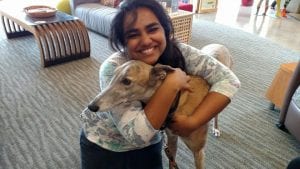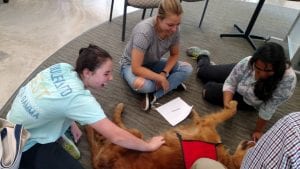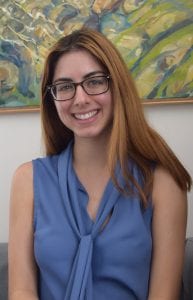
Student Analyst
- Senior, SMU Class of 2018
- Cox School of Business, General Business
- Dedman College of Humanities and Sciences, International Studies and Spanish
- President’s Scholar
- Cox BBA Scholar
- McLane Scholar
- Research on artisan entrepreneurship and inclusive economic development
“My motivation is closely tied to my personal beliefs and life experiences. Like a perfectly functioning ecosystem, I believe that everyone and everything in this life is (somehow) connected. Growing up, a string of small opportunities opened up the world for me. The idea of giving back by creating even the smallest opportunity for someone else to improve their life, and thereby the lives of others through those they touch, is what drives me.” – Silvia Rivera
Silvia graduated from Southern Methodist University with a B.B.A in General Business and B.A.s in International Studies and Spanish. She was also an SMU President’s Scholar and Cox BBA Scholar. As a child, she immigrated to the U.S. with her family from Chiapas, Mexico and is passionate about breaking down complex issues and empowering underrepresented individuals.
At the Hunt Institute, Sylvia conducted research on artisanal entrepreneurship and empowering female artisans and assisted with the Hunt Institute’s Inclusive Economy Consortium.
While at SMY, Silvia build professional experience and developed her business acumen through case competitions, leadership workshops and summer internships, most recently serving as an Advisory intern for global professional service firm EY in Dallas, TX and Bogotá, Colombia.
Currently, Sylvia is attending Boston College where she is pursuing a Masters in Education in Early Childhood Education.
Contributors to this blog post:
Written by: Kim Strelke
Edited by: Silvia Rivera & Maggie Inhofe
Photo by: Alissa Llort
To read more about the Hunt Institute’s work to develop future-focused solutions to some of the world’s biggest problems, please click here. For the latest news on the Hunt Institute, follow our social media accounts on LinkedIn, Facebook, and Instagram. We invite you to listen to our Podcast called Sages & Seekers. If you are considering engaging with the institute, you can donate, or sign-up for our newsletter by emailing huntinstitute@smu.edu.







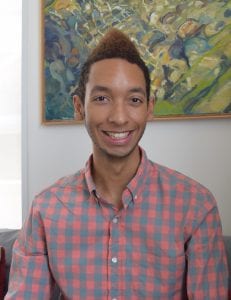
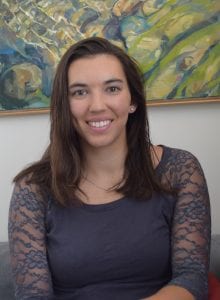
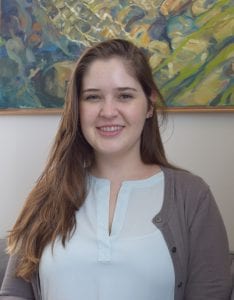




 Chad Houser is the Executive Director and Chef at Café Momentum – a restaurant and culinary training program for juvenile offenders at Dallas County Youth Village. Café Momentum is a regionally recognized restaurant (Top Dallas Restaurant in 2016) and a national recognized organization that provides a transformative experience for its interns. Through a 12-month paid post-release internship program
Chad Houser is the Executive Director and Chef at Café Momentum – a restaurant and culinary training program for juvenile offenders at Dallas County Youth Village. Café Momentum is a regionally recognized restaurant (Top Dallas Restaurant in 2016) and a national recognized organization that provides a transformative experience for its interns. Through a 12-month paid post-release internship program Ryan Eason is the Manager of Community Relations and Strategic communications for Medical City Healthcare. Ryan created the program Kids Teaching Kids to educate students about healthy eating habits. Local high school culinary students create healthy recipes for elementary students, while encouraging them to make their own healthier treats during a 21 day challenge. Finally, these high school culinary students create healthy kids menus (like mac and cheese with pureed squash) that can be offered in restaurants. The program has brought a healthier lifestyle to tens of thousands of school children in north Texas. Ryan created the program four years ago, and it continues to grow each year thanks to his dedication and creativity.
Ryan Eason is the Manager of Community Relations and Strategic communications for Medical City Healthcare. Ryan created the program Kids Teaching Kids to educate students about healthy eating habits. Local high school culinary students create healthy recipes for elementary students, while encouraging them to make their own healthier treats during a 21 day challenge. Finally, these high school culinary students create healthy kids menus (like mac and cheese with pureed squash) that can be offered in restaurants. The program has brought a healthier lifestyle to tens of thousands of school children in north Texas. Ryan created the program four years ago, and it continues to grow each year thanks to his dedication and creativity. 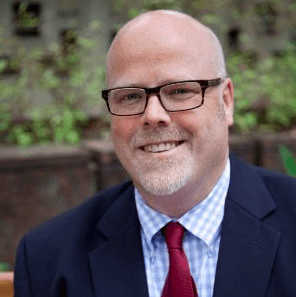 Owen Hanley Lynch is an Associate Professor of Communication at SMU, and the Senior Research Fellow for the Hunt Institute for Engineering & Humanity in the Lyle School Engineering. Dr. Lynch is also the Executive Director of Get Healthy Dallas, a nonprofit organization dedicated to addressing the lack of healthy food options, adequate education, and economic development opportunities in South Dallas. In November 2017
Owen Hanley Lynch is an Associate Professor of Communication at SMU, and the Senior Research Fellow for the Hunt Institute for Engineering & Humanity in the Lyle School Engineering. Dr. Lynch is also the Executive Director of Get Healthy Dallas, a nonprofit organization dedicated to addressing the lack of healthy food options, adequate education, and economic development opportunities in South Dallas. In November 2017 Jennifer Eyer leads the Food in Schools Initiative for Children at Risk. Part of the Food in Schools program is the Universal School Breakfast throughout Dallas Independent School District. Universal School Breakfast dramatically improves access to healthy food for children, while increasing their attentiveness and classroom performance. This program is coupled with an extensive outreach programming to educate other school districts across the state on strategies to implement universal school breakfast programs and to increase participation of schools. Children at Risk also educates and performs outreach on summer meal programs and
Jennifer Eyer leads the Food in Schools Initiative for Children at Risk. Part of the Food in Schools program is the Universal School Breakfast throughout Dallas Independent School District. Universal School Breakfast dramatically improves access to healthy food for children, while increasing their attentiveness and classroom performance. This program is coupled with an extensive outreach programming to educate other school districts across the state on strategies to implement universal school breakfast programs and to increase participation of schools. Children at Risk also educates and performs outreach on summer meal programs and Drew Demler
Drew Demler